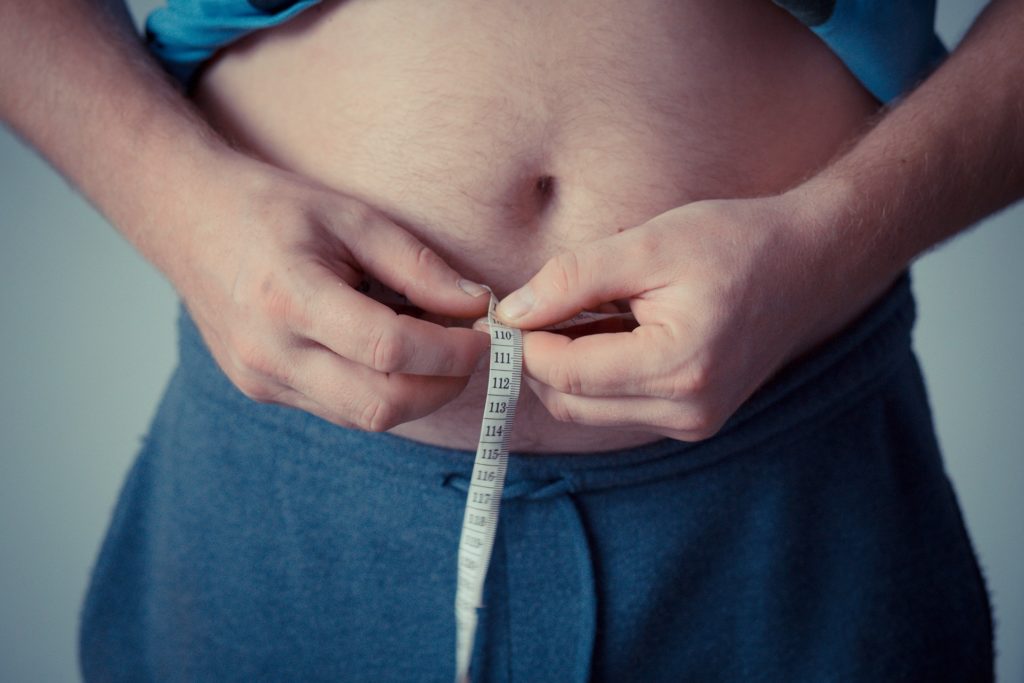Fat in your Diet
- Including fats in your diet is essential for good health. However, too much fat can contribute to obesity and a higher risk of heart disease, high blood pressure, diabetes, gall stones and certain cancers.
- Dietary fats/oils contain more than double the energy (calories) of carbohydrates and protein per gram:
Energy Values Per Gram
| Carbohydrate: | 4 Calories – 17 kilojoules |
| Protein: | 4 Calories – 16 kilojoules |
| Fat/Oil: | 9 Calories – 37 kilojoules |
| Alcohol: | 7 Calories – 29 kilojoules |
- Dietary fat is more readily converted to and stored as body fat, compared to carbohydrates and protein.
- Consuming more carbohydrates than your body needs means any excess carbohydrates may also be converted and stored as body fat – especially in women in their fertile years when extra fat pads are more readily laid down in the thighs and buttocks.
- Excess alcohol lessens your body’s ability to burn fat. Fat storage is promoted, particularly in the belly – a danger zone.
Recommended Fat Intake
Australians consume too much fat, with many obtaining over 40% of their total calories/kilojoules from fat – either as fat or oil, or as fat in foods and drinks. A range of 20-30% is considered much healthier.
Healthy Ranges for Fat Intake
| Children: | 30-60g |
| Teenagers (Active) : | 40-80g |
| Women : | 30-60g |
| Men (Active): | 40-80g |
| Heavy Activity/Athlete: | 80-120g |
The chart below shows the recommended maximum fat intake for different energy levels.
| Maximum Desirable Daily Fat Intake | |||
| Calories | kJoules | Fat | % Cals/kJ
From Fat |
| 1200 cals
1500 cals 1800 cals 2000 cals 2200 cals 2500 cals 2800 cals 3000 cals 3500 cals 4000 cals |
4800kJ
6300 kJ 7500kJ 8400 kJ 9200kJ 10,500 kJ 11,700kJ 12,500 kJ 14,600kJ 16,700 kJ |
30g fat
40g fat 50g fat 60g fat 70g fat 80g fat 90g fat 100g fat 117g fat 135g fat |
23%
24% 25% 27% 28% 29% 29% 30% 30% 30% |
Note: At lower calorie levels, the percent of calories from fat should decrease to allow for protein calories (which have nutritional priority).
Infants Fat Intake
Infants and toddlers under 3 years shouldn’t be restricted in their fat intake, because much larger volumes of food are required to guarantee adequate energy intake and growth. Whole milk should be used, rather than low-fat milk.
Similarly, a high fibre diet is not suitable for infants.

